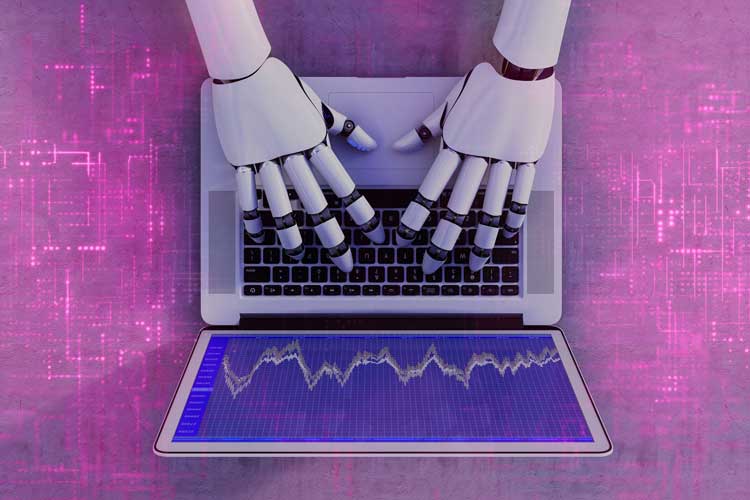The workplace as we know it is undergoing a profound transformation, with artificial intelligence (AI) playing a central role. Rather than replacing human workers, AI is increasingly being integrated into our professional lives, giving rise to a new paradigm—the AI-human partnership. In this article, we’ll explore how this partnership is shaping the future of work, revolutionizing industries, and redefining the way we approach our careers.
From Automation to Augmentation
The fear of AI and automation rendering humans obsolete has been a persistent narrative. However, the reality is more nuanced. AI isn’t just a tool for automating tasks; it’s a powerful instrument for augmenting human capabilities. Here’s how the AI-human partnership is evolving:
- Task Automation: AI excels at automating routine, repetitive tasks, freeing humans to focus on more creative, strategic, and complex aspects of their work.
- Data Analysis: AI can process vast datasets in seconds, providing insights humans might not discover independently. This enhances decision-making and strategy development.
- Personalization: AI-driven algorithms personalize user experiences, whether recommending content, products, or services. This leads to more satisfied customers and improved engagement.
- Predictive Capabilities: AI’s predictive abilities are invaluable, from anticipating equipment maintenance needs in manufacturing to predicting market trends in finance.
- Streamlined Operations: In logistics and supply chain management, AI optimizes routes, tracks inventory, and minimizes delays, resulting in cost savings and efficiency.
- Creativity Enhancement: AI can assist creatives in generating ideas, offering design suggestions, and even composing music or generating art.
Redefining Roles and Industries
The AI-human partnership is reshaping industries across the board:
- Healthcare: AI augments doctors’ diagnostic abilities, analyzes medical images, and personalizes treatment plans based on a patient’s genetic makeup.
- Education: AI personalizes learning experiences, assists teachers in assessment, and provides additional support for students with individualized learning needs.
- Finance: In the financial sector, AI manages portfolios, detects fraudulent transactions, and offers real-time market insights.
- Manufacturing: Automation and AI-powered robots enhance production efficiency and quality control, while human workers focus on innovation and problem-solving.
- Customer Service: Chatbots and virtual assistants handle routine inquiries, leaving human customer service agents to address more complex and emotionally nuanced issues.
- Legal: AI assists lawyers with legal research, document review, and contract analysis, reducing the time and effort required for these tasks.
- Entertainment: AI is used in content recommendation algorithms, video game development, and scriptwriting, contributing to more engaging entertainment experiences.
The Future of Work
As the AI-human partnership continues to evolve, the workplace of the future will look vastly different:
- Hybrid Roles: New job roles combining technical AI expertise and human skills will emerge. For example, AI ethicists will ensure responsible AI use.
- Continuous Learning: Lifelong learning will become essential as workers adapt to changing job requirements. Reskilling and upskilling will be ongoing processes.
- Creativity and Innovation: Human workers will increasingly focus on creative, strategic, and innovative tasks that AI cannot replicate.
- Problem-solving: Complex problem-solving and critical thinking skills will be highly valued as AI handles routine tasks.
- Emotional Intelligence: Jobs requiring emotional intelligence, empathy, and human connection will thrive.
- Collaboration: Collaborating effectively with AI systems and other humans will be a sought-after skill.
Challenges and Considerations
The AI-human partnership isn’t without challenges:
- Job Displacement: While AI augments many jobs, it can also lead to job displacement in certain industries. Preparing workers for these shifts is crucial.
- Ethical Use: Responsible AI use and ethical considerations, such as data privacy and bias, must be at the forefront of AI integration.
- Equity: Ensuring that AI benefits are distributed equitably and that no one is left behind in this technological shift.
- Education: Developing educational programs that equip individuals with the skills to thrive in a technologically advanced workplace.
Conclusion: Embracing the Future
The AI-human partnership is not a dystopian vision of AI dominance but a promising collaboration that enhances our capabilities and redefines work. Embracing this partnership means embracing change, continuous learning, and adaptation. The future of work is not about humans versus machines; it’s about humans working alongside machines to achieve new levels of productivity, creativity, and innovation. As we navigate this transformation, we can shape a future where technology complements and empowers human potential, ultimately making work more fulfilling and meaningful.
Read More: Experience a Harmonious Living Experience at Haridev Aatreya by Dev Group in Gandhinagar

